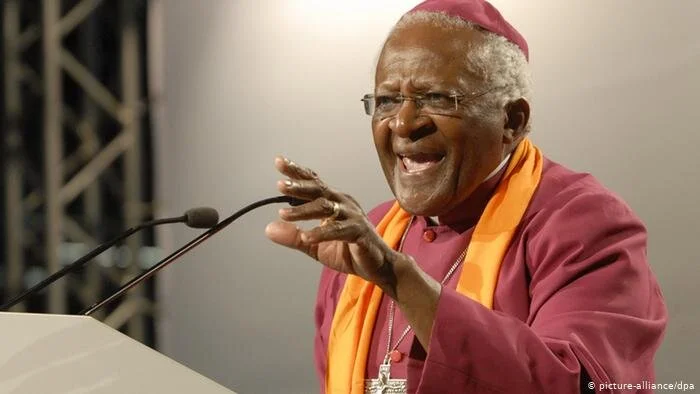Desmond Tutu on Compassion
He won the Nobel Peace Prize in 1984 not just for his struggle against South African apartheid but for his outline of a just society for all. Archbishop Tutu spoke to PT about the limits of conventional justice.
Camus once said, "We all carry within us our ravages, our crimes, our places of exile." Are there ravages you still inwardly struggle with?
One of my chief weaknesses is loving to be loved. I have been hurt very deeply over being ostracized, ridiculed, vilified. You want the people you like to think you're a good guy. So it went very much against the grain for me to stand up and condemn the apartheid setup.
You've been vilified by racists and by those who felt that perpetrators of great crimes were let off the hook.
Whenever both sides are against you, you're probably saying something right! Often people talk of justice as only retaliative. But more and more countries are thinking there might be something to restorative justice.
Americans have trouble forgiving, while South Africans have forgiven generations of agonizing oppression.
I am surprised how Americans, who might believe firmly in compassion, have a streak of vengeance and continue to support the death penalty.
You have said, "I must forgive so that the desire for revenge does not corrode my being."
This has to do with our world view as Africans: I can be human only in relationships. Our greatest good is communal harmony. Revenge and anger subvert this.
People in Western societies are often concerned less about their community than their development as individuals.
Yes, but none of us is self-sufficient. God made us for interdependence. A person is a person through other persons. This is when God rubs his hands in satisfaction and says, "Yea, mon!"
Some biologists say our struggle for existence is written by the selfish gene.
We have made our differences a cause for conflict. All human beings are fundamentally good. That is why you and I thrill not in the presence of the highly aggressive or the rich or the macho but in the presence of Mother Teresa, someone so small you could put her in your back pocket and forget about her.
She became a universal emblem of compassion. But she once said she was "60 percent Attila the Hun."
Compassion is not just feeling with someone, but seeking to change the situation. Frequently people think compassion and love are merely sentimental. No! They are very demanding. If you are going to be compassionate, be prepared for action!

